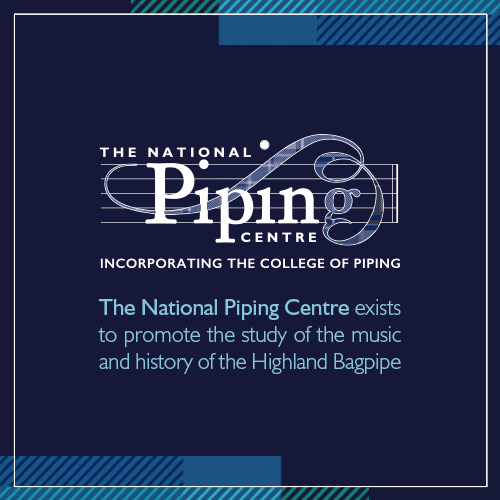
Getting rid of beer tent enclosures and adopting a more ‘open park’ format instead, is one of the recommendations contained in a recent academic study into major pipe band competitions in Scotland.
The study, undertaken by Amy Fenton of Napier University in Edinburgh, further considers it would be, “advantageous for all pipe band events to be a fully licensed venue rather than one small area being fenced off”.
Currently, major pipe band events are fully licensed but, due to local licensing laws, some contain bandsmen and women within a small fenced area policed by stewards.

Allowing all pipe band events to be a fully licensed venue would, says Ms Fenton, allow people to enjoy the full scope of the event whilst enjoying a drink and would also keep underage players from attempting to enter the beer tent. This is something that has been successful, for example, at the British Championships held in Paisley and should be implemented at other competitions.
The 23-year-old tenor drummer from Perth, Scotland said: “I’ve often noticed the place alcohol holds at a competition, with many band members spending a large part of their day in the beer tent. This has led to underage drinking and heavily intoxicated players during the massed bands. There is also a lack of academic research surrounding pipe bands, although there is some literature around Scottish cultural events.”
Pipe bands are part of a Scottish subculture, says Ms Fenton, which has a separate ‘over permissive’ drinking culture suggesting that intoxication and intoxicated behaviours are something which are accepted in the community. This cements the place of alcohol in the pipe band culture, highlighting that alcohol is an integral part of this.
“The data for alcohol at these events proved interesting as the want of underage players to socialise in the beer tent became apparent. This is something that has been noticed over the years by band members and is something that is still a large issue. It is apparent that the idea of an ‘open park’ is one that is better suited for socialising.”
Based on the results of surveys with pipe band members, Ms Fenton makes several recommendations. Firstly, it would be advantageous for all pipe band events to be a fully licensed venue rather than one small area being fenced off. This would allow people to enjoy the full scope of the event whilst enjoying a drink and would also keep underage players from attempting to enter the beer tent. This has been successful at the British Championships and can be implemented at other competitions.

Secondly, the introduction of reusable plastic cups should be considered by organisers. This has been introduced at stadiums such as Murrayfield, where a deposit is paid for the cup alongside the drink which can be refilled during the course of a visit. Upon returning the cup to the customers are given their deposit back. This, says Ms Fenton, will combat the issue of litter.
Thirdly, the introduction of policies to encourage more players to leave the beer tent before massed bands should be considered. This will allow for high band professionalism at all times – meaning that other issues such as aggression, public urination and disorderly behaviour at massed bands could be combated. This could be introduced by earlier closing times of bars, or by introducing a rigid schedule to ensure that bands have a set time to complete their march past. There is already some form of schedule however, this is very fluid and does not encourage members to actively participate.
As part of her research, Ms Fenton contacted the organisers of each of the major band competitions. However, only the organisers of the British Championships, Paisley Council, agreed to an interview. Seemingly, the total attender spend for last year’s competition – held at St James’ Playing Fields in Paisley – was just under £470,000 with a direct economic impact of just over £300,000.
Pipe band drinking, and pipe bands in general, are under researched and it would be of great interest to understand this unique culture further, she adds.
A spokesman for Armagh City, Banbridge and Craigavon Borough Council, promoters of the United Kingdom Championships at Lurgan, said: “There was a bar area within the park and the alcohol was only to be consumed within the fenced off area, as the by-laws were lifted for that specific area in the park only and not throughout the park..”
A spokesman for Piping Inverness, promoters of the European Pipe Band Championships at Bught Park, Inverness, said: “The only requirement we had [from the local authority] was that alcohol had to stay within the arena but people were allowed to walk around with their beer.”


